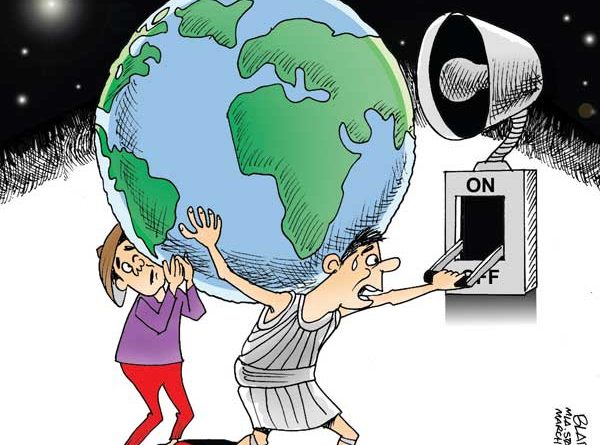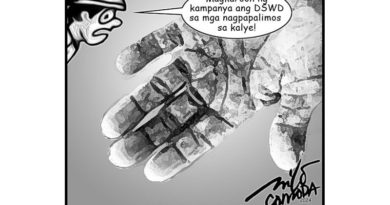ASEANEWS EDITORIAL CARTOONS MARCH 31, 2019: A continuing commitment
ASEAN EDITORIAL CARTOONS.
.
SINGAPORE’S The Straits Times
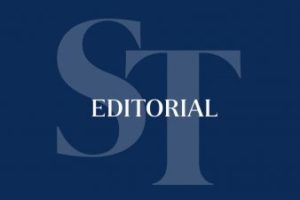
The Sunday Times says
Hawker culture a tasty nomination
And so the wait begins. Nomination documents have been submitted by the National Heritage Board, National Environment Agency and the Federation of Merchants’ Associations, Singapore, for hawker culture here to be inscribed on Unesco’s Representative List of the Intangible Cultural Heritage of Humanity. This is a unique collection, not of monuments, buildings, places and spaces, but one that acknowledges, celebrates and gives recognition to traditions and expressions that have been inherited, experienced and passed on. The scope of the list is wide, and can encompass anything from oral traditions and performing arts to rituals and social practices, among others.
For Singapore, the hope is that the everyday experience of what takes place in the country’s ubiquitous community dining rooms – about 110 hawker centres where more than 6,000 cooked-food hawkers produce an assortment of mouth-watering dishes daily – can join the club. More than 80 per cent of the population eat out at hawker centres at least once a week. The result of the nomination will be known at the end of next year. Whatever the outcome, the effort to have hawker culture listed is also a salutary nod to street-food vendors – later resettled in centres across the island – who provided sustenance, and still do, to people of a still-growing nation.
TO READ THE FULL ARTICLE:
https://www.straitstimes.com/opinion/st-editorial/hawker-culture-a-tasty-nomination
.
ADS by Cloud 9:
– SPACE RESERVE FOR YOUR ADVERTISEMENT –
.
.
<>
THAILAND’S BANGKOK POST
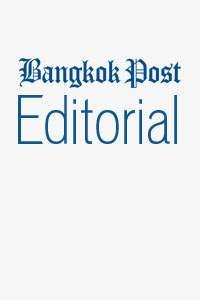
OPINION:
NCPO pulls out old cards
After general elections last Sunday, the country should have been moving to embrace a democratic environment and leave behind a culture of heavy-handed suppression of free speech and political activity, which has been rampant under the military regime over the past years. However, reactions from a number of the regime’s key figures and authorities towards the emerging political scene seem to suggest otherwise.
Yesterday, the police arrested nine people alleged of sharing “fakes news” on Facebook related to the sacking of two election commissioners and bogus ballots in wake of controversial poll results and other irregularities.
Meanwhile, on Wednesday, student campaigners at Kasetsart University’s Bangkhen campus were stopped by plainclothed police officers and security guards from campaigning and collecting signatures from other students to impeach seven election commissioners for overseeing “the flawed election”.
Since then, the National Council for Peace and Order (NCPO) has made it clear to the public to not spread political rhetoric that could incite unrest or instigate divisiveness in society. Obviously, this refers to public statements by anti-regime political parties who branded themselves as the “pro-democracy” camp and called their arch-rivals, which support the regime, the “pro-dictatorship” camp.
These actions by the authorities reflect what has happened to many citizens under the NCPO’s ruling for almost five years.
The police’s filing of criminal charges against nine social media users, for alleged violations of the draconian Computer Crime Act, is just another indiscriminate use of the law against free speech. Before them, many other Facebook users had been charged under the same law. The latest incident is just another example of the police’s abuse of power which will only further instil a climate of fear among the public. The nine people told police that they didn’t know what they shared was fake news. The case against them should be closed there. If the police wanted to further pursue this case, it should try to find out who produced the news and then investigate their motive.
Meanwhile, what happened at Kasetsart University reminds many of the state’s intimidation of students and academics in the past years. Academic institutions should be the most open space for freedom of expression. Even though the university’s rector said this kind of activity should be allowed, it seemed like the campus’ administrators followed a different policy.
Additionally, the NCPO’s warning against the emerging political rhetoric is the same card it has used as the justification to contain and forbid political activities. Such a warning first came from NCPO spokesman Winthai Suvaree on Wednesday. Then, its chairman and Prime Minister Prayut Chan-o-cha stressed the same message yesterday as he urged the media to properly report on political parties’ efforts to form a coalition government and called on the people to use their utmost consideration when consuming the media.
With such warnings, the regime has tried to instigate fear in the public’s sentiment and control the political narrative. But the anti-junta camp, led by the Pheu Thai Party, simply re-emphasised their pro-democracy political stance. This is not hate speech that needs to be contained. It is a free speech that should be open to debate.
With this election, Thailand should have started to transition from authoritarian rule to a democracy. The state’s intimidation of political activities or suppression of free speech should no longer have its place.
TO READ THE FULL ARTICLE: https://www.bangkokpost.com/opinion/opinion/1653460/ncpo-pulls-out-old-cards
>.
ADS by Cloud 9:
.
– SPACE RESERVE FOR YOUR ADVERTISEMENT –
.
.
PHILIPPINES’ EDITORIAL CARTOONS:
.
MANILA STANDARD
 > A continuing commitment
> A continuing commitment
…
MANILA TIMES
 > RESSA’S ARREST
> RESSA’S ARREST
<>
THE INQUIRER
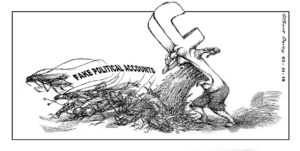 > More teeth for RH Law
> More teeth for RH Law
…
PHILSTAR
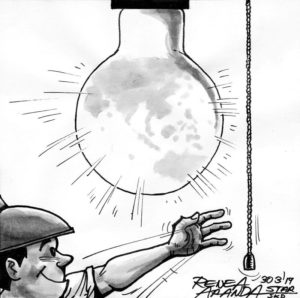 > #Connect2Earth
> #Connect2Earth
PILIPINO STAR NGAYON
 > Daming artista na nagdodroga
> Daming artista na nagdodroga
.
ADS by Cloud 9:
.
– SPACE RESERVE FOR YOUR ADVERTISEMENT –
.
.
ADS by Cloud 9:
– SPACE RESERVE FOR YOUR ADVERTISEMENT –
.
.

All photographs, news, editorials, opinions, information, data, others have been taken from the Internet ..aseanews.net | [email protected] |.For comments, Email to :D’Equalizer | [email protected] | Contributor

